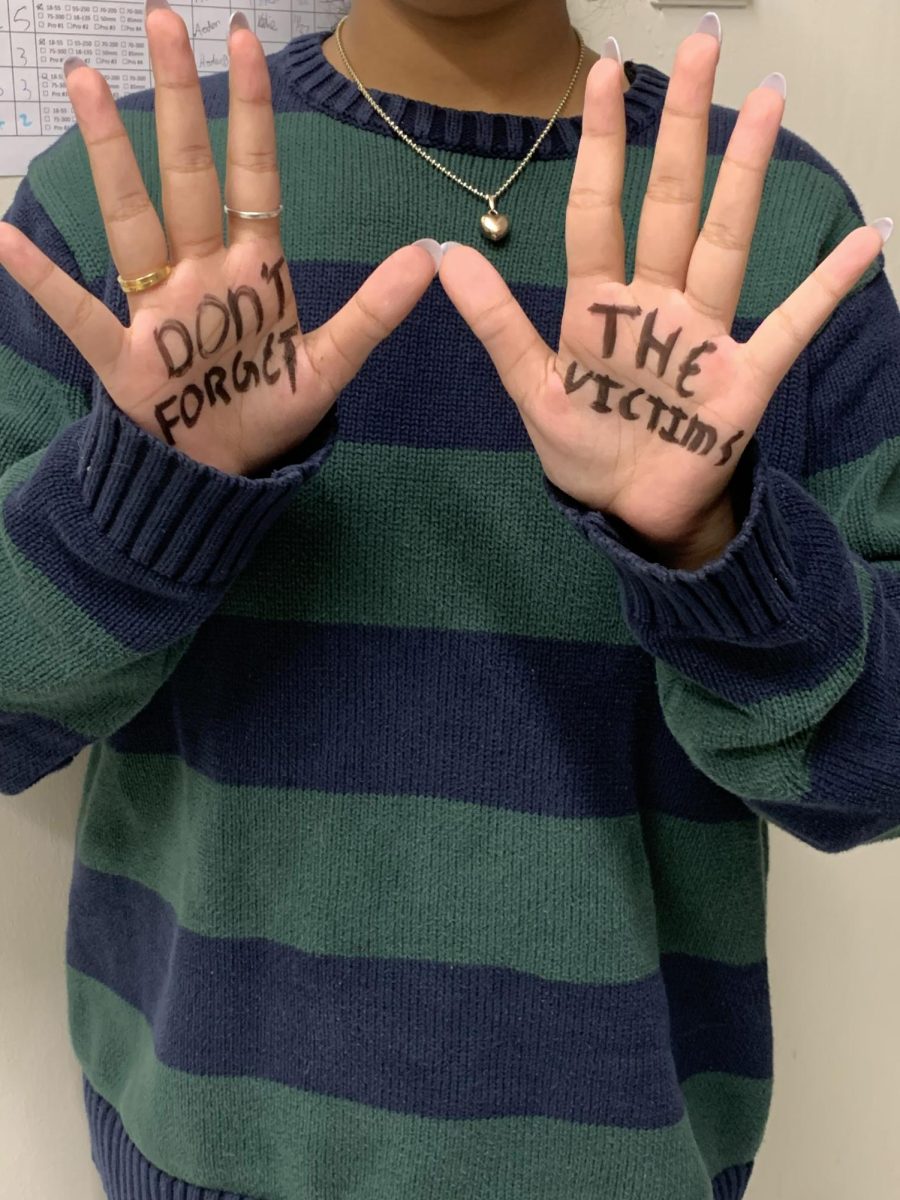As with many sources of media, the hit series Dahmer on Netflix received backlash on its lack of empathy towards victims. Critics have argued that true crime media, such as Dahmer, are unjustly capitalizing on horrible events that continue to hurt victims and their families. This raises the question, is true crime media immoral because it treats the harm and suffering of real human beings as entertainment?
The answer lies within the victims.
In the case of Collier Landry who had been the star witness to his mother’s murder, the constant publicization and intrusion of true crime podcasters forced him to relive the experience daily.
He had been, and still is, ostracized by society because of his situation. Unfortunately, this type of injustice is a common occurrence for victims.
True crime media has garnered controversy because some podcasters are trying to entertain their consumers rather than inform them. This can create drastic consequences pertaining to the victims.
Additionally, the spread of misinformation can retraumatize its victims.
Amanda Knox, a victim of misinformation, wrote an article where she revealed she had been mislabeled by True Crime podcasts. The series of True Crimes would label her as a villain which lead to True Crime fans sending her hate mail and other derogatory items.
True Crime enthusiast Jamie Brown believes true crime entertainment should be required to seek the consent of victims. “I feel like [true crime entertainment] is using [victims] for means of entertainment, so it’s kinda immoral for them not to seek the victim’s consent”
People may think that trying to reach out to every victim of a crime would take some time and would be a lot of work for producers, however, by checking with victims, producers would prevent the spread of misinformation.
For many years, the sharing of crime stories was to inform people and bring awareness to injustice. However, with the increase in consumerism and monetization in social media, most media that was supposed to be “informing people” shifted their goal toward gaining profit.
When producers try to create an interesting tale instead of the real story, they risk spreading misinformation and thus, further retraumatizing victims.
Some True Crime podcasts may try to spice up their storytelling by adding dramatic sound effects or exaggerated descriptions.
“Sometimes when I listen to a True Crime podcast, it feels more like a made-up story than a real crime that happened,” stated junior Kelly Wu. While this is intended to capture the audience’s attention, these techniques can skew the perception of the case and exaggerate certain elements, potentially leading to misinformation.
Another injustice towards victims is the romanization of the killers. Some true crime podcasts will try to excessively delve into the background and psyche of the killer, and consequently, humanize the killer. Fans might start to sympathize with the killer and be hateful towards the victims.
It should be considered unethical to believe that the victims are more of a story to profit off of instead of a human with traumatic experiences.









